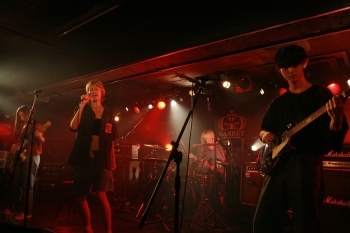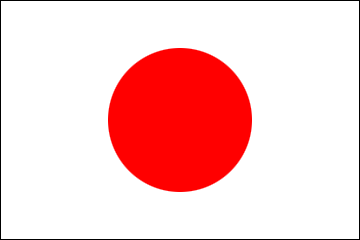Japanese Government (MEXT) Undergraduate Scholarships in Japanese Studies
MEXT Alumni Personal Experiences
Alice King
Japanese Government (MEXT) Undergraduate Scholarship in Japanese Studies
Sophia University, September 2022 – August 2023
 I feel extremely privileged to have received the MEXT Undergraduate Scholarship in Japanese Studies for the year 2022-2023. The first two years of my degree in Japanese Studies at my home university were rather tumultuous, with the pandemic starting midway through my first year, and my second year spent learning remotely and tainted by a period of poor mental health. After a year’s intermission from university to allow my mental health to ameliorate, I was recommended by my professors to apply for MEXT, although I was not confident that I would even pass the first paper application stage, let alone the interview process. Thankfully, my worries were proven to be unfounded, and I found myself on a plane to Tokyo by early September 2022.
I feel extremely privileged to have received the MEXT Undergraduate Scholarship in Japanese Studies for the year 2022-2023. The first two years of my degree in Japanese Studies at my home university were rather tumultuous, with the pandemic starting midway through my first year, and my second year spent learning remotely and tainted by a period of poor mental health. After a year’s intermission from university to allow my mental health to ameliorate, I was recommended by my professors to apply for MEXT, although I was not confident that I would even pass the first paper application stage, let alone the interview process. Thankfully, my worries were proven to be unfounded, and I found myself on a plane to Tokyo by early September 2022.
It is worth mentioning that the application process in and of itself, although manageable if done far enough in advance, does have several moving parts, such as handwritten, multi-page forms, as well as medical applications requiring tests that aren’t regularly carried out in the UK. Everyone at the Japanese Embassy is lovely, though; the atmosphere on the day of my interview was cheerful and welcoming, and the interview itself felt like a stimulating and friendly conversation, so I’d say that the process was very enjoyable, overall.
Spending 11 months in Tokyo was an adventure that will stay with me for a very long time. The pace of life there is extremely fast – it is a hub not only for business but also for higher education, leisure, and tourism, after all – so there were points at which I was on the brink of being overwhelmed by the combined forces of my university coursework and the never-ending bureaucracy of the Kuyaku-sho, or ward office. Having said that, I believe it was precisely those moments which encouraged me to step outside of my comfort zone and grow, both academically and as a self-sufficient adult. Not only am I now more confident than ever before when speaking and writing in my second language, but I also feel completely at ease when navigating scenarios involving greater levels of personal organisation and responsibility (opening a new bank account or arranging national insurance payments, for example), of which I had had pitifully little experience prior to moving to Japan.
I also believe that my time in Tokyo made me more resilient socially. The fact that I have been speaking and engaging with media in Japanese for almost 10 years notwithstanding, I found it quite difficult to make lasting and meaningful friendships during my stay. As there is a palpable difference in how deeply people connect and interact in Japan, informed by the distinction between uchi (in-group) and soto (out-group), it took me a long time to make my way out of the former into the latter and hear people’s honne (true feelings/opinions), instead of facing their tatemae (how you present yourself in line with societal expectations). Once I managed this though, I felt affirmed in my ability to adapt to new cultural landscapes, as well as reassured by the fact that my Japanese classmates were just as open to making new friends as I was, albeit in a different manner to that which I am accustomed.
Speaking of classmates, what made my time in Tokyo particularly enjoyable was undoubtedly the fact that I was studying at Sophia University. The quality of teaching in my language classes was extremely high, enabling me to refine my skills and focus in on aspects of Japanese that I hadn’t studied before such as collocations and the appropriate usage of niche idiomatic expressions. Moreover, the non-language courses available to me were stimulating and wide-ranging. One class upon which I look back fondly is the beginners’ Python coding class, which stimulated my brain in new ways and aided me in broadening my understanding of data processing and software development. Studies were not the be-all and end-all of my time at Sophia, however: the sheer scope of extra-curricular ‘circles,’ also known as clubs and societies in the UK, was mindboggling, and I was lucky enough to join both the Sophia Vegan Circle and the Light Music Circle. Through these groups, I was able to connect with like-minded people, as well as go on a club trip to Nagano and perform in a band with my classmates respectively, which in turn allowed me to dive head-first into student life and make deeper connections with my fellow students.
In short, the niche I managed to carve for myself in Tokyo during my eye-opening and fulfilling year there was one filled with new experiences and warm memories, and for that I have MEXT to thank. Without their support those experiences would have remained far out of my reach, so I am eternally grateful for their providing me the opportunity to mature as a person and gain more perspective on what life can be like outside the bubble of my home country. As such, I urge all those who are contemplating applying for the MEXT scholarship to seize the day and go for it!


